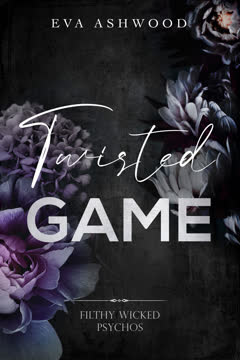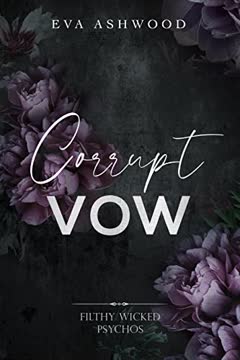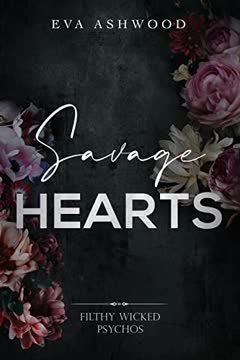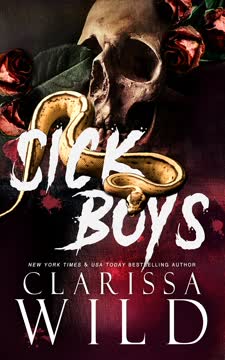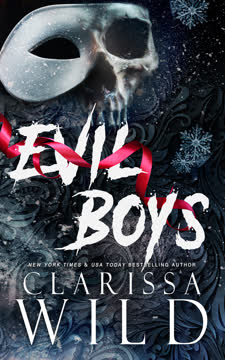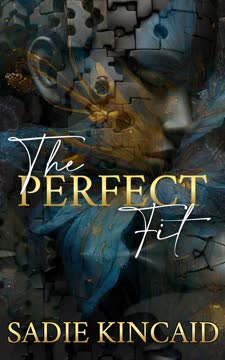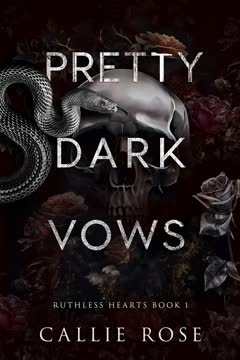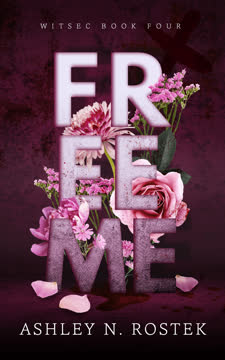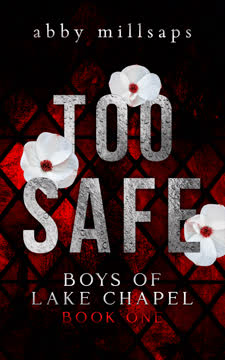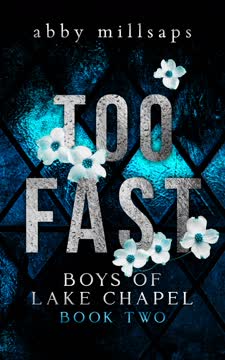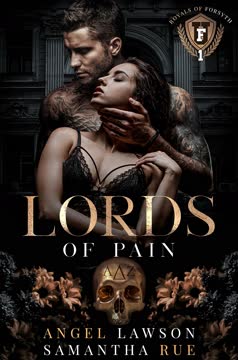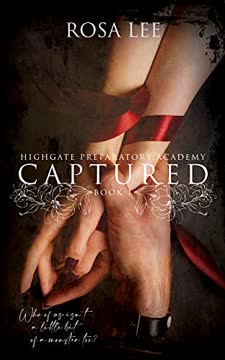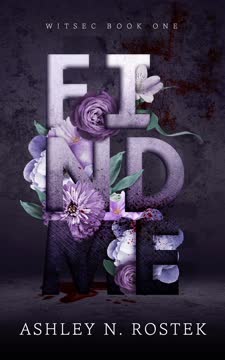Plot Summary
Tuition Ultimatum
Willow Hayes, a scarred, determined college student, is confronted by the harsh reality that her patched-together scholarships have failed, and she's about to lose her place at Wayne State University. The threat of being forced back into the cycle of poverty and trauma she's fought so hard to escape looms over her. Her GED, her age, and her scars all seem to mark her as an outsider, and the condescension of the administration only deepens her sense of isolation. Willow's resolve is fierce, but the clock is ticking, and the world feels like it's closing in. The only thing she knows for sure is that she can't give up—no matter what it costs.
Scars and Survival
Willow's life is a daily battle against shame and survival. Working as a cocktail waitress in a Detroit strip club, she's constantly reminded of her physical scars—remnants of a childhood fire and a lifetime of being treated as less-than. Her boss, Carl, is a predator, and the club is a microcosm of the city's cruelty. Willow's scars make her both invisible and hyper-visible, and she's forced to navigate a world that sees her as damaged goods. Yet, beneath her vulnerability, there's a core of steel: she refuses to let her past define her, even as it shapes every choice she makes.
The Unthinkable Offer
When Willow asks Carl for a chance to dance and earn more money, he cruelly rejects her, then offers something far darker: the chance to sell her virginity to a brothel for a life-changing sum. The humiliation and horror of the offer are almost overwhelming, but the need to pay tuition and escape her circumstances is stronger. Willow's decision is agonizing, but she agrees, telling herself it's just one night, one act, for a future she can't otherwise reach. The deal is struck, and Willow steps onto a path that will change her life forever.
Three Brothers' Vow
Malice, Victor, and Ransom Voronin are three brothers forged by violence and loss. Their mother's murder haunts them, and their lives are a blend of criminal enterprise and relentless pursuit of justice. Each brother is marked by trauma: Malice's rage, Victor's cold precision, and Ransom's charm all mask deep wounds. Their bond is unbreakable, and their code is simple—protect each other at all costs, and make those who hurt them pay. When they finally get a lead on their mother's killer, their focus sharpens to a single, bloody point.
Blood and Vengeance
Willow's night at the brothel becomes a nightmare when her "buyer" turns out to be a brutal Russian, Nikolai, who sees her as nothing but a commodity. As he assaults her, the Voronin brothers burst in, guns blazing. They kill Nikolai and exact a savage, personal vengeance, revealing the depth of their pain and the darkness of their world. Willow, traumatized and covered in blood, becomes a witness to their crime—a loose end in a world where loose ends don't survive. The brothers' code is tested: do they kill her, or let her go?
A Witness Spared
Ransom intervenes, arguing that killing Willow would make them no better than the man who murdered their mother. Malice, torn between rage and reason, threatens her but ultimately lets her go, warning that if she ever talks, she's dead. Willow flees, traumatized and terrified, but alive. The brothers burn the brothel to cover their tracks, but the decision to spare Willow sets in motion a twisted game of surveillance, paranoia, and unexpected connection. Willow is no longer just a bystander—she's a liability, a secret, and a temptation.
Haunted and Hunted
Willow tries to return to her old life, but she's changed. Nightmares and flashbacks haunt her, and the brothers' threats loom over every moment. She's forced to quit her job at the club, cut off from her only source of income. Meanwhile, the brothers debate what to do about her, torn between the need to eliminate a witness and the strange pull she exerts on each of them. Victor installs hidden cameras in her apartment, watching her every move. Willow senses she's being watched, but can't prove it. The city feels more dangerous than ever.
The Price of Silence
The brothers pay off Willow's tuition and deposit money in her account, making her dependent on them. Malice confronts her on campus, reminding her of the deal: silence in exchange for her life. The power dynamic is clear—she's under their control, even as she tries to assert her independence. When Willow is attacked by a stalker, she runs to the brothers for help, and they kill her pursuer without hesitation. The lines between protector and captor blur, and Willow's world narrows to the dangerous orbit of the Voronin brothers.
Unraveling Connections
As Willow's dependence on the brothers grows, so does her entanglement in their world. She learns more about their past, their pain, and the code that binds them. Ransom becomes her confidant, Malice her tormentor and protector, and Victor the cold observer who sees everything. When her mother steals from her, Malice intervenes, forcing her mother to return the money and revealing a rare moment of vulnerability. The brothers' enemies multiply, and Willow becomes both a pawn and a prize in a game she barely understands.
Tangled Loyalties
The brothers' obsession with Willow deepens, each drawn to her in different ways. Ransom's charm gives way to genuine affection; Malice's rage masks a possessive hunger; Victor's detachment cracks, revealing longing and pain. Willow, caught between fear and desire, finds herself drawn to all three, even as she tries to resist. Their world is violent and unforgiving, but the connection between them is undeniable. The boundaries between captor and captive, protector and prey, begin to dissolve.
The Unforgiving City
The brothers' criminal enterprise is threatened by rival gangs and the vengeful brother of the man they killed. Willow's presence becomes a liability and a source of tension. When a gang deal goes bad after one of the brothers defends Willow from assault, their reputation suffers, and new enemies are made. The city closes in, and the brothers must decide how far they'll go to protect their secret—and Willow. The stakes rise, and the cost of survival grows ever higher.
Lines Crossed
The brothers' vow not to touch Willow is shattered as desire overwhelms restraint. A night of drinking and confessions leads to a shared, taboo encounter—Willow is marked, claimed, and initiated into their world in every sense. The experience is both liberating and terrifying, and it changes everything. The brothers are no longer just her captors or protectors—they are her lovers, her monsters, and her only family. The lines between love and possession, safety and danger, are obliterated.
The Cost of Protection
As the threat from Nikolai's brother, Ilya, grows, the brothers become more desperate. Failed assassination attempts, injuries, and close calls leave them on edge. Willow, now fully enmeshed in their lives, becomes both their weakness and their strength. When Victor is forced to kill Willow's old boss to protect her, the brothers realize that keeping her safe may cost them everything. The city's violence is relentless, and every choice has consequences.
Family and Betrayal
Willow discovers that Victor has been recording her, compiling footage of her most intimate moments and sending it to a mysterious, powerful figure known as X. The betrayal is devastating—every moment of vulnerability, every act of trust, has been weaponized against her. The brothers' motives are called into question, and Willow is forced to confront the possibility that she was never more than a pawn in their game. The sense of family she thought she'd found is ripped away, leaving her alone and hunted once more.
The Monster's Mark
Heartbroken and furious, Willow flees the brothers' home, determined to escape their control and the pain of their betrayal. She takes what little money she can find and disappears into the city, evading their surveillance and plotting her escape. But Detroit is unforgiving, and Willow's flight is cut short when she's abducted by an unknown assailant. The city's darkness closes in, and Willow's fate hangs in the balance.
The Taste of Power
The Voronin brothers wake to find Willow gone, and panic sets in. Their carefully constructed world—built on violence, loyalty, and control—begins to collapse. The consequences of their choices, their secrets, and their inability to let go of Willow come crashing down. Each brother is forced to confront what she means to them, and what they're willing to do to get her back. The game has changed, and the stakes are higher than ever.
The Dream and the Dare
Willow's dreams and desires, once a source of shame, become a crucible for transformation. The brothers' love is twisted, dark, and all-consuming, but it offers a kind of freedom she's never known. As she faces the reality of her situation—caught between monsters and the city's violence—Willow must decide who she is, and what she's willing to risk for love, survival, and power. The line between victim and survivor, prey and predator, blurs beyond recognition.
The Breaking Point
Betrayal, violence, and longing converge as Willow's world is torn apart. The brothers, fractured by guilt and desperation, must decide whether to save her or save themselves. Willow, stripped of illusions, faces her darkest fears and her deepest desires. The city's unforgiving streets become a battleground, and the twisted game that began with a desperate bargain reaches its shattering climax. In the end, only the strongest—those willing to embrace their darkness—will survive.
The Game Turns
As the dust settles, the rules have changed. Willow is no longer the girl she was, and the brothers are no longer just her captors or lovers—they are her equals, her rivals, and her only hope. The city is still dangerous, the enemies are still out there, and the past is never truly buried. But the twisted game that bound them together has become something else: a crucible that forges monsters, survivors, and a new kind of family. The story is far from over.
Characters
Willow Hayes
Willow is a young woman marked by trauma—both physical and emotional. Her scars are a constant reminder of a childhood fire and a life spent on the margins, but they also symbolize her resilience. Driven by a fierce desire to escape poverty and her mother's legacy of addiction and exploitation, Willow is both vulnerable and unbreakable. Her relationships are shaped by a deep mistrust, but also a longing for connection and safety. As she's drawn into the Voronin brothers' world, Willow's journey is one of self-discovery, sexual awakening, and the painful realization that survival sometimes means embracing the darkness within.
Malice Voronin
Malice is the embodiment of violence and pain—a man whose anger is both his weapon and his shield. Scarred by an abusive father and the murder of his beloved mother, Malice is driven by vengeance and a need to control the chaos around him. His relationship with Willow is fraught with tension: he's both her tormentor and her savior, drawn to her vulnerability and strength. Malice's journey is one of battling his own demons, learning to trust, and confronting the possibility that love can be as dangerous as hate.
Ransom Voronin
Ransom is the youngest brother, the bridge between Malice's fury and Victor's coldness. His easy charm masks a deep well of pain and a desperate need to protect those he loves. Ransom is the first to see Willow as more than a liability, and his affection for her is genuine and transformative. He's the most open of the brothers, but also the most haunted by the fear of losing his family. Ransom's arc is one of learning to balance loyalty with desire, and discovering that true strength lies in vulnerability.
Victor Voronin
Victor is the brains of the operation—a hacker, planner, and observer who keeps his emotions tightly controlled. His childhood was a crucible of pain, shaped by a father who tried to mold him into a weapon. Victor's detachment is both a survival mechanism and a prison, and his fascination with Willow is as much about curiosity as it is about longing. He watches her obsessively, struggling to reconcile his need for order with the chaos she brings. Victor's journey is one of learning to feel, to trust, and to accept that love can't be controlled.
Misty Hayes (Willow's Mother)
Misty is Willow's adoptive mother, a woman broken by her own traumas and addictions. She oscillates between moments of affection and acts of betrayal, stealing from Willow and using her as a crutch. Misty's relationship with Willow is a toxic cycle of need and abandonment, shaping Willow's fears of intimacy and trust. She represents the inescapable pull of the past, and the danger of loving someone who can't love you back.
Carl (Strip Club Boss)
Carl is the embodiment of the city's cruelty—a man who sees Willow's desperation as an opportunity for profit. His offer to sell her virginity is both a humiliation and a lifeline, setting the events of the story in motion. Carl's death at Victor's hands is both justice and a reminder of the violence that underpins every transaction in this world.
Nikolai Petrov
Nikolai is the Russian who purchases Willow's virginity, seeing her as nothing more than a commodity. His assault on Willow and subsequent murder by the brothers is the inciting incident that binds Willow's fate to theirs. Nikolai's death is both a moment of liberation and the beginning of a new kind of captivity.
Ilya Petrov
Ilya is Nikolai's brother, a shadowy figure with ties to the Russian mafia. His quest for vengeance drives much of the story's tension, forcing the brothers and Willow into a constant state of paranoia and danger. Ilya is a mirror of the brothers' own capacity for violence, and his pursuit is a test of their loyalty and cunning.
X (The Handler)
X is the unseen force who holds the brothers in his grip, blackmailing them into carrying out his dirty work. His demand for Willow is a test of their loyalty and a threat to everything they've built. X represents the inescapable power of the past, and the danger of playing a game whose rules are always changing.
April Simms
April is the head of a clique at Willow's college, embodying the petty cruelty and social hierarchies that Willow can never quite escape. Her taunts and gossip are a reminder that even in the "normal" world, Willow is an outsider. April's presence is a counterpoint to the brothers' violence—a different kind of brutality, no less damaging.
Plot Devices
Duality of Power and Vulnerability
The novel's central device is the constant shifting of power between characters—Willow's vulnerability is both her greatest weakness and her unexpected strength. The brothers' violence is both a source of protection and a threat. The story uses alternating points of view and shifting alliances to keep the reader off balance, mirroring Willow's own uncertainty. Surveillance (literal and metaphorical) is a recurring motif: Victor's cameras, the brothers' watchful eyes, and the city's ever-present danger all serve to remind us that no one is ever truly safe or unseen.
The Scar as Symbol
Willow's scars are a literal mark of her trauma, but they also become a symbol of her resilience and uniqueness. The brothers' tattoos serve a similar function—each mark tells a story of pain, survival, and transformation. The act of tattooing becomes a ritual of claiming and being claimed, a way of rewriting the past on the body.
The Twisted Game
The title's "game" is both literal and metaphorical: the characters are constantly maneuvering for advantage, testing boundaries, and redefining the rules of engagement. The sexual dynamics are fraught with danger and desire, blurring the lines between pleasure and pain, consent and coercion. The game is never fair, and the only way to win is to change the rules.
Foreshadowing and Repetition
The novel uses dreams, flashbacks, and repeated motifs (fire, blood, the color red) to foreshadow key events and to draw connections between past and present. Willow's nightmares and fantasies become a crucible for transformation, and the brothers' repeated threats and acts of violence are both warnings and invitations.
Found Family and the Limits of Loyalty
The brothers' bond is the story's emotional core, but it's also a source of conflict and pain. Their loyalty to each other is absolute, but it's tested by their growing feelings for Willow and the demands of survival. The question of who can be trusted—and what it means to belong—is at the heart of every decision.
Analysis
Twisted Game is a dark, unflinching exploration of trauma, power, and the search for belonging in a world that offers no easy answers. At its core, the novel asks what it means to survive when every system—family, society, love—is broken or weaponized against you. Willow's journey is one of transformation: from victim to survivor, from outsider to the center of a new, dangerous family. The brothers, each scarred in their own way, are both her captors and her liberators, forcing her to confront the parts of herself she's tried to hide. The story's violence and eroticism are not just for shock—they are the crucible in which identity is forged, and the means by which the characters test the limits of love, loyalty, and self-destruction. In a modern context, Twisted Game is a meditation on the ways we are shaped by our wounds, and the possibility of finding connection—even love—in the most unlikely, and even monstrous, places. The lesson is not that pain ennobles, but that survival requires embracing the darkness within and without, and that sometimes, the only way out is through.
Last updated:
Review Summary
Twisted Game received mixed reviews, with ratings ranging from 1 to 5 stars. Positive reviews praised the spicy romance, intriguing characters, and addictive plot. Critics found the story predictable, the characters underdeveloped, and the writing average. Many readers enjoyed the reverse harem dynamic and dark themes, while others felt the book fell short of expectations. The cliffhanger ending left readers eager for the next installment, despite some frustrations with the plot and character development.
